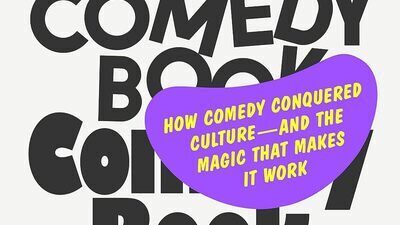If the comedy doesn’t connect with me for whatever reason, I don’t find it actively sinister or bad. I’m able to join in with the audience if the size and energy are correct. Mostly I’m happy to be around people laughing. I think, Okay, cool, this is great, the audience is doing a good job supporting whatever this is. You can appreciate it as you would any art form, like when you walk around a museum. You see different things and you go, I like this a lot, I’ll spend time with it, or, I don’t like this that much, but I’ll read what the deal is and contextualize it.
You quote Marc Maron, who said that laughter is the only thing standing between us and fascism. I don’t know; I saw one so-called right-leaning comedian who told these absolutely horrible jokes about Hillary Clinton, and the audience rocked with laughter. It was almost frightening.
It’s complicated. The problem is that as much as the right can say that all comedy on the left is clapter and pandering, that’s not exactly true. If you’re going to see a comedian just because you agree with their political opinions, then they are not operating as comedians. They are operating as birthday party clowns who repeat the phrases people know from watching Fox News. Donald Trump is the best version of that.
Another recurring theme of the book is that comedy should be taken seriously as an art form. Should there be an Oscar for comedy?
It’s a conundrum. If you have a Best Comedy Oscar, more comedies will be recognized. But you are recognizing it as a lesser thing, a sub-category. That would only work if you did that for other genres like Best Horror or Best Action. It’s too condescending to me. I don’t want it to be seen as a second-class art form.
It’s ironic that in a time of unprecedented access, there seems to be limited interest or knowledge about comedy’s forebears. I’ve noticed that about film as well. Do you think it’s important that comedy nerds know their history?

